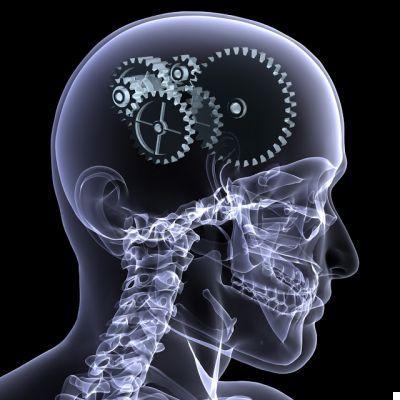
The concept of metacognition is complex and recently included in psychology. Specifically, the first serious studies relating to the same date back to the decade of the 70s of the past century and focused on examining the processes that, at the unconscious level, put
basically, very good students when they study or face problems.
Currently, all psychologists recognize the importance of this construct but few coincide in offering a single answer to the question: what is metacognition? For this reason, in the literature, it is possible to encounter different concepts of metacognition.
From the simplest, such as: "Metacognition is a broad concept that encompasses the conscious control of cognitive processes such as attention, memory and understanding" (Rios, 1991). To more complex definitions, such as: “Metacognition is the knowledge and regulation of our own cognitions and our mental processes such as: perception, attention, memorization, reading, writing, understanding, communication; what they are, how they are made, when one or the other is used, what factors help or interfere in its operation. Perhaps it would be better to call it self-reflective knowledge ”(Burón, 1996).
In summary, it can be said that metacognition in psychology indicates a certain level of knowledge of the form in which our cognitive processes (memory, attention, perception and thinking) take place. However, metacognition goes a little further since it implies
also the ability to control these processes and also to evaluate them as well as to affect them to improve our performance.
In this sense, one of the most interesting aspects of metacognition in psychology refers to the knowledge we have of our psychological resources. Thus, reference is made to three
different types of metacognitive consciousness: declarative knowledge (knowledge related to things), procedural knowledge (knowledge of how things are done) and conditional knowledge (related to why and when).
Declarative knowledge includes knowing about ourselves and the factors that affect our way of performing and learning when we carry out various activities (related to school learning or any other type of learning).
Procedural knowledge refers to knowledge related to how to perform these tasks. People with procedural knowledge use their skills automatically, sequence strategies more efficiently, and use them qualitatively in different ways both to solve problems and to accomplish any other type of business.
Conditional knowledge refers to knowing when and why to apply different cognitive actions and could be defined as knowing the usefulness of cognitive processes.
Obviously, in some cases we have declarative or procedural knowledge but we do not come to obtain conditional knowledge, which is one of the most difficult levels of metacognition to achieve.
In practical life, having a high level of metacognition not only helps us to solve tasks adequately but also allows us to obtain solutions in less time and with less effort for the simple reason that if we are able to monitor our process of problem solving, we can easily change errors and take another more productive path.
Even though adult people are usually more metacognitive than children, this does not mean that we have developed our maximum potential, since unfortunately school
contemporary focuses very little on teaching metacognitive strategies.


























